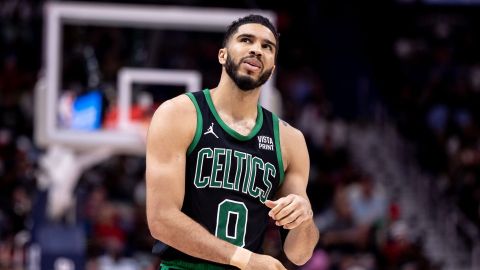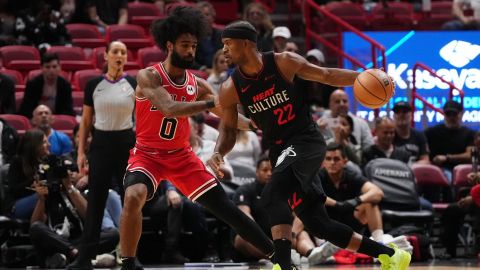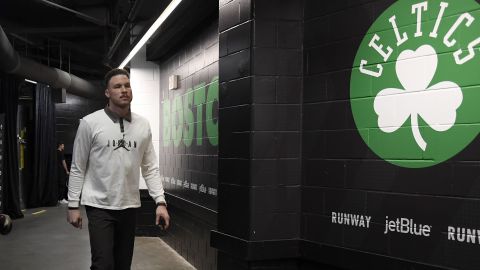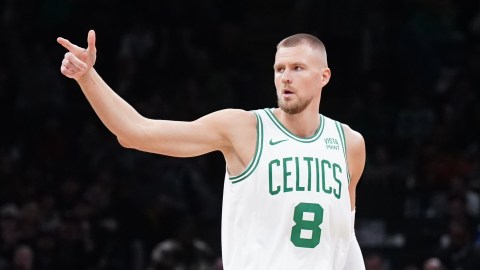We've now reached the point in the NBA offseason where, with only a few notable exceptions, the wheeling and dealing is done. Everyone, for the most part, is where they're going to be. That's that.
Every executive in the league now has a pretty good idea of how much they're spending to field a team in the winter of 2009-10. And in quite a few cases, they wish that figure could be quite a bit smaller. If only.
In an unprecedented uptick this offseason, we're about to see the NBA's luxury tax take a toll on more teams than ever before. Twelve franchises — that's 40 percent of the NBA — have crossed the tax threshold of $69.92 million for next season. Last season, when the cutoff point was marked at $71.2 million, only seven teams were paying the tax.
It's a startling development. We're in a bad economy, and teams have less money to spend than they expected a year ago. Revenues are going down, and owners' bankrolls are getting slimmer. But the players' greed for big paychecks isn't going anywhere. The big free agents on this summer's market — the Lamar Odoms, Hedo Turkoglus and Ben Gordons of the world — still wanted plenty of money.
Everyone was spending because they wanted to win a title. The Lakers are the defending champions, but the field is still a bit open. Everyone's got a shot. The Celtics are only a year removed, the Spurs have a championship nucleus in place, and a bunch of top-tier teams — Cleveland, Orlando, Utah — are stacked with young talent on the verge of taking it to the next level.
The money's flowing. No one wants to pour boatloads of cash into a contender just to fall short. No one wants to watch the Finals on TV next June thinking, "What if we'd spent just one million more?" So everyone's shelling out the big bucks for free agents. This is how the NBA operates.
It's different in basketball than in any other sport. Major League Baseball doesn't see this trend — the tax in baseball is reserved for only the fattest of the fat payrolls. At the end of last season, only the Yankees and Tigers were forced to pay up. The Red Sox spent over $133 million, and no one even blinked.
If only the other free-spending Boston team could be so lucky.
In bringing back free agent forward Glen Davis two weeks ago, the Celtics pushed their payroll above $80 million for the first time. Giving Davis the extension he wanted — two years, $6.3 million — brought the Celtics' total expenditures for next season to $81,555,128. It's an unbelievable amount considering that two seasons ago, they won a championship for just over $63 million.
But what can they do? It's hard to blame the C's for upping the ante. Their three biggest stars alone combine to make $55 million, and those three led the Celtics to championship banner No. 17. But the team needed a supporting cast, and that costs money.
The C's spent a ton this offseason — $5.8 million on Rasheed Wallace, $2.8 million on Eddie House, plus the extension for Big Baby — but it couldn't be avoided.
Once over the threshold, a team is forced to match all of its spending, dollar for dollar, with a contribution to the luxury tax. The Celtics began their offseason with a payroll in the $70 million range, and that was with basically no bench. The C's knew they'd have to spend.
These days, the stakes have changed. The salary cap in the NBA is merely a suggestion — and it's one that in order to win, you have to ignore. Only the free-spending survive.
So is it worth it for the Celtics to drop an eight-figure pile of cash this offseason? Of course. Luxury is never cheap — especially not in the NBA. Championships never come easy. But in the end, they're worth every penny.



